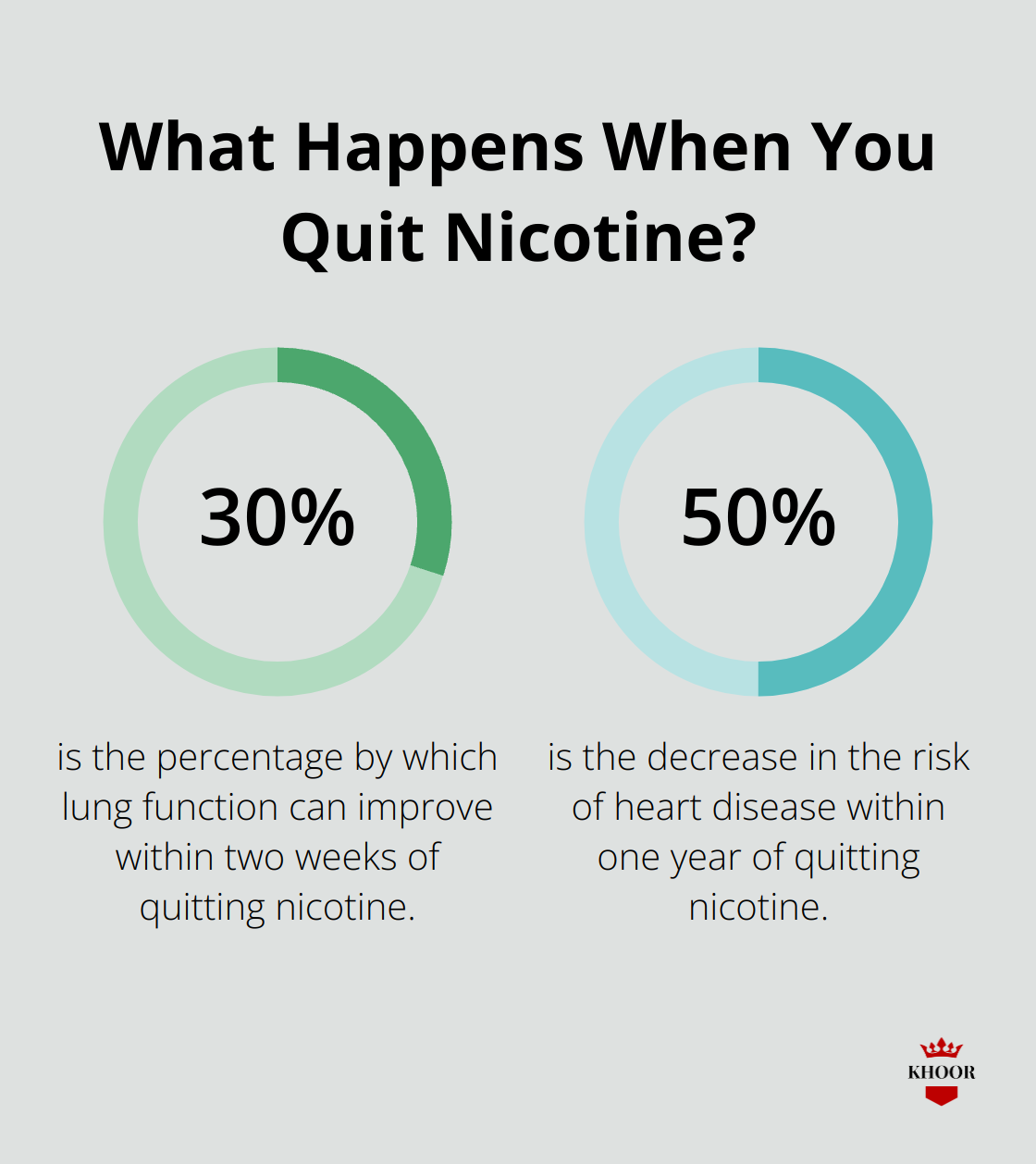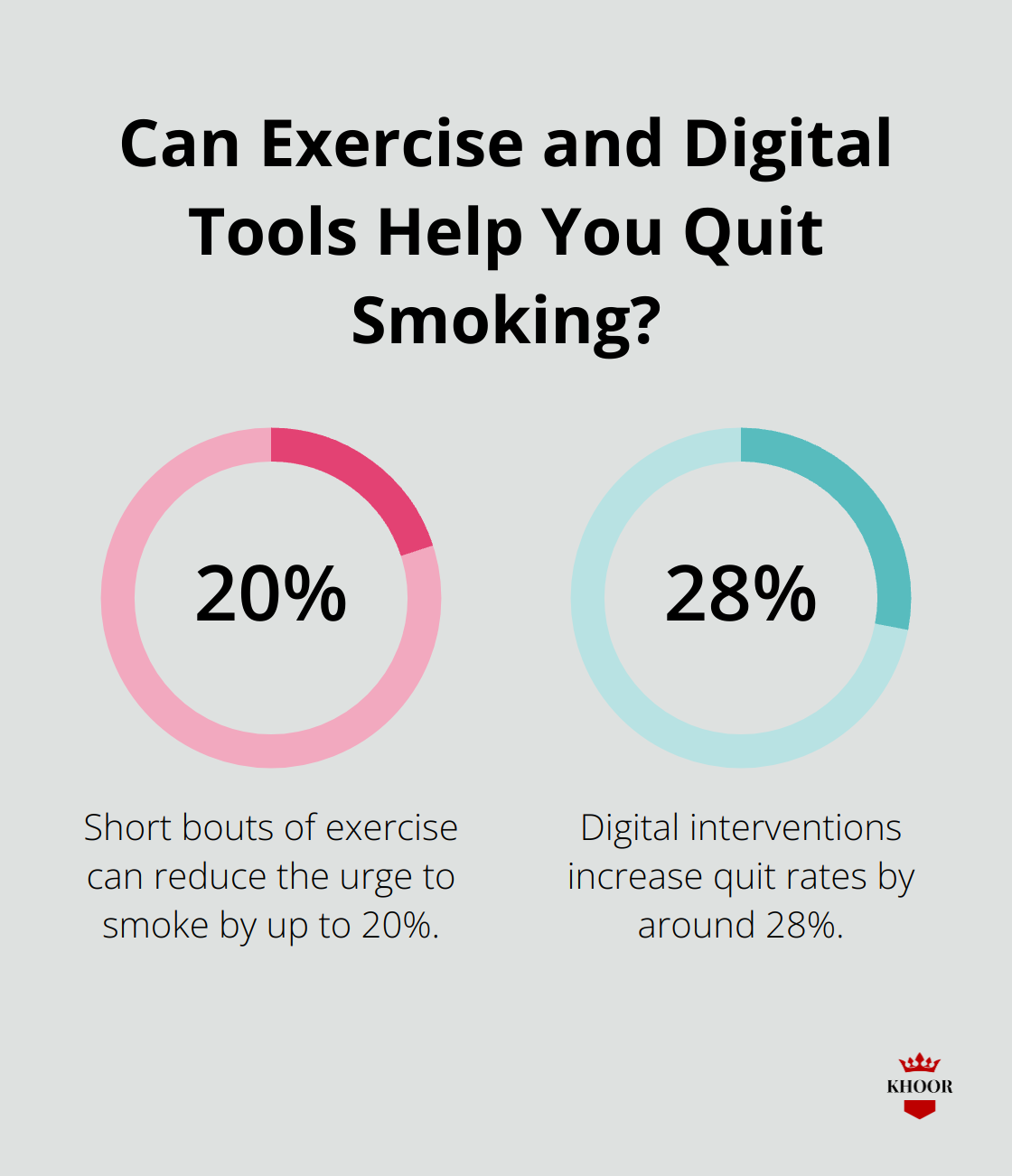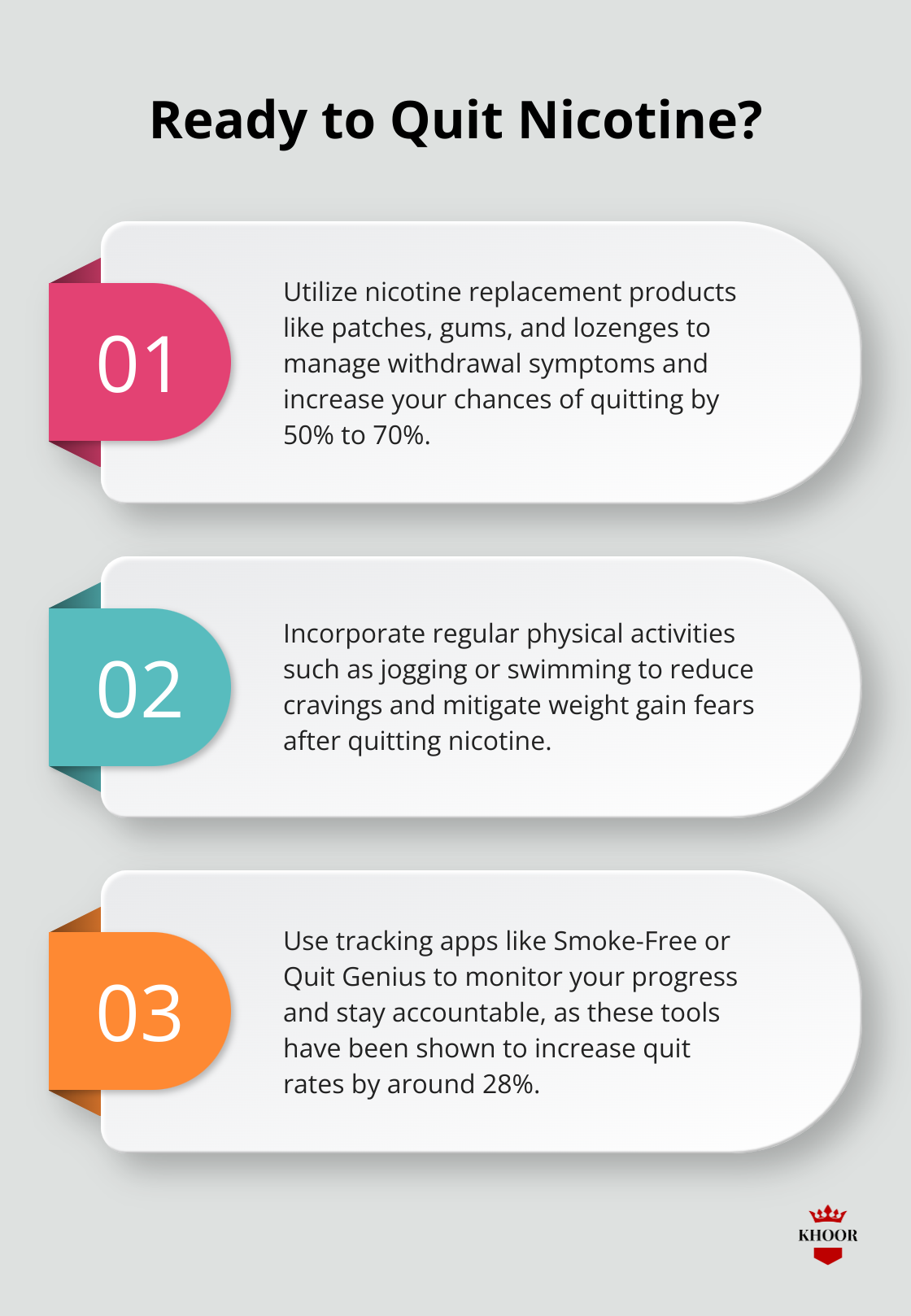
Herbal Smoking Wellness: All You Need to Know
Explore the benefits and tips of herbal smoking wellness with information on health impacts, botanical choices, and DIY blends.

Adopting a nicotine-free lifestyle comes with a myriad of benefits, from better physical health to financial savings.
At KHOOR, we understand the journey to quit nicotine isn’t easy, but it’s worth it.
Join us as we explore practical tips, address common challenges, and highlight the positive changes you can achieve by living nicotine-free.
Improved physical health is one of the immediate benefits when you quit nicotine. According to the American Lung Association, lung function can improve by up to 30% within just two weeks of quitting. Your lungs start to repair themselves, and you’ll notice breathing becomes easier. Regular exercise can aid this process. Engaging in physical activities like jogging or swimming increases lung capacity and helps manage the weight gain many people fear when quitting.

Another significant improvement is in cardiovascular health. A study from the University of Edinburgh found that within one year of quitting, the risk of heart disease drops by 50%. This dramatic decrease is due to improved blood flow and a decrease in cholesterol levels, contributing to better overall heart health.
Quitting nicotine can also lead to better mental health. A study published in the British Medical Journal found that quitting smoking was associated with reduced anxiety, depression, and stress. Most participants showed significant improvement in their mental well-being within six weeks. Techniques like mindfulness meditation or yoga can be highly effective in managing the stress and anxiety that often accompany the quitting process.
The financial benefits of quitting nicotine are substantial. If you smoke a pack a day, you could be spending over $2,000 annually on cigarettes, not to mention additional healthcare costs related to smoking-related illnesses. These savings can be used in more productive ways, such as investing in a gym membership to improve your physical health or other activities that enhance your quality of life.
You can read more about these benefits in our detailed blog post on the benefits of quitting nicotine.
Utilizing support groups and professional counseling can significantly boost your chances of quitting nicotine. According to the Centers for Disease Control and Prevention (CDC), people who seek out counseling are about 1.5 to 2 times more likely to quit successfully. Whether it’s one-on-one sessions with a therapist or joining a group of individuals going through the same journey, having someone to talk to during challenging moments makes a huge difference.
Nicotine replacement therapy (NRT) has proven very effective for many individuals. Patches, gums, lozenges, and nasal sprays can help manage withdrawal symptoms by providing small, steady doses of nicotine without the harmful chemicals found in cigarettes. The National Institutes of Health (NIH) reports that using NRT increases the likelihood of quitting by 50% to 70%. To complement these methods, alternative products like herbal cigarettes can be beneficial. These products mimic the act of smoking without delivering nicotine, helping to ease the transition.
Replacing smoking with healthier activities is essential for maintaining a nicotine-free lifestyle. Physical activity, such as jogging, swimming, or yoga, can lessen withdrawal symptoms and cravings. A study from the University College London found that even short bouts of exercise can reduce the urge to smoke by up to 20%. Additionally, incorporating relaxation techniques like deep breathing can alleviate stress and anxiety, making the quitting process more manageable.
Keeping track of your progress can be a powerful motivator. Apps like Smoke-Free or Quit Genius offer tools to log your progress, set goals, and receive encouragement. According to a review in the Journal of Medical Internet Research, digital interventions increase quit rates by around 28%. Also, staying accountable by sharing your journey with friends and family can provide extra support. The one-page quit guide can offer additional tips to keep you on track.

Having access to these practical resources and incorporating new habits into your daily routine can significantly aid in the journey to a nicotine-free life.
Nicotine cravings can be intense but usually last only 5 to 10 minutes. Research highlights that delaying the urge can make a significant difference. Distracting yourself with a chore or a hobby during this time can be effective. Physical activity is another proven method. Engaging in exercises like jogging or a quick walk can reduce cravings. According to a study from Brown University, even short bouts of physical activity can lower the desire to smoke by 20%.

Using nicotine replacement products such as gums or patches can also help manage withdrawal symptoms. Short-acting options like lozenges can be useful during sudden cravings. Combining multiple approaches, such as physical activity and replacement therapies, significantly boosts success rates.
Nicotine cessation often comes with stress and anxiety. One effective technique to cope with this is mindfulness meditation. According to a study published in JAMA Internal Medicine, mindfulness meditation can lead to a 25% reduction in stress levels. Practicing deep breathing exercises is another practical method. Taking just five minutes to focus on deep breathing can significantly reduce anxiety.
Incorporating yoga into your routine can also be beneficial. A study from Iran University of Medical Sciences found that yoga sessions twice a week lowered anxiety and stress by up to 30%. Engaging in regular physical activity, such as swimming or cycling, helps elevate your mood by releasing endorphins, which act as natural stress relievers.
Staying motivated can be challenging, but setting clear goals and tracking your progress can make a significant difference. Apps like Smoke-Free offer daily motivation and track your progress, which has been found to increase quit rates by 28%. Sharing your journey with friends and family not only boosts your motivation but also provides an accountability mechanism that can help you stay on track.
Avoiding known triggers is crucial. Situations like social gatherings where smoking is common can be challenging. Preparing for these events by carrying substitutes like sugar-free gum can help you manage cravings. Another actionable tip is to stay away from alcohol and other substances that can weaken your resolve.
For those interested in additional resources, our one-page quit guide offers more tips and tricks to stay nicotine-free. Additionally, joining support groups where you can share experiences and get advice can be highly beneficial. According to the CDC, people who participate in counseling are almost twice as likely to quit successfully. Integrating these practical steps into your daily life can significantly improve your chances of maintaining a nicotine-free lifestyle.
Living a nicotine-free lifestyle offers extensive benefits, from significant improvements in physical well-being to substantial financial savings. You can see enhanced lung function, with an improvement of up to 30% within two weeks, and a 50% reduction in heart disease risk within a year. Mental health also sees positive changes, with reduced anxiety and stress levels aiding a more balanced life.

Making the transition to a nicotine-free life can be challenging, but support groups and therapies can bolster your success rate by up to 1.5 to 2 times. Utilizing nicotine replacement therapies like gums and patches increases your chances of quitting by 50% to 70%, and alternative products like herbal cigarettes can ease the transition.
Addressing nicotine cravings with distractions and physical activities can diminish urges and stress. Regular exercise can decrease cravings by 20%, while mindfulness and yoga can significantly reduce stress and anxiety. Apps like Smoke-Free also offer tools and support to keep you motivated, enhancing your quit rates by around 28%.
At KHOOR, we offer a premium, natural, tobacco-free, and nicotine-free smoking experience. With flavors like Original, Menthol, Vanilla, and Berry Blue, our herbal cigarettes provide a rich taste and smooth smoking experience without harmful effects. Explore options like our 4-pack flavor sampler to find your preferred flavor.
Embrace a healthier life and consider beginning your journey towards a nicotine-free lifestyle. You can access additional tips and support by exploring our quit guide. Make the choice today and experience the positive changes that come with a life free from nicotine.

Explore the benefits and tips of herbal smoking wellness with information on health impacts, botanical choices, and DIY blends.

Explore how KHOOR supports nicotine replacement with herbal cigarettes, success rates, and user stories for a healthier, smoke-free life.

Explore the benefits of quitting tobacco & nicotine with healthy alternatives. Improve your health and well-being with tips and data-backed advice.

Achieve your quit smoking goals with KHOOR’s supportive approach. Discover benefits, statistics, and practical tips for a healthier life.

Explore practical tips to smoke without nicotine, including product recommendations and real-life statistics to support your healthier lifestyle choices.

Explore tobacco-free alternatives with KHOOR. Learn about options like herbal cigarettes, nicotine pouches, and vaping for a healthier lifestyle.